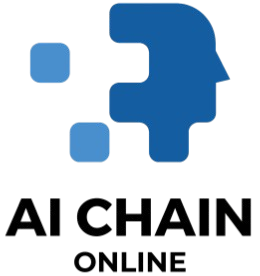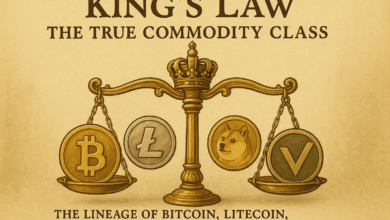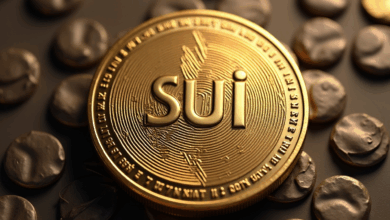Unlocking Capital Market Growth Opportunities
Introduction
While global investors tend to concentrate their attention on developed economies in North America, Europe, and Asia, Latin America quietly emerges as an unsaturated frontier for financial innovation and exponential capital growth. With its high level of financial exclusion, persistent inflation, complex regulatory environments, and a large population that remains underserved by traditional banks, the region is ripe for disruption. For the Contrarian Investor, opportunities in this region present not just potential alpha but also lasting socio-economic impact. The advent of tokenization—representing real-world assets as blockchain-based digital tokens—may serve as the lever that unlocks vast, dormant potential across this dynamic region.
Challenges in Capital Markets in Latin America
Latin America has long struggled with deep-seated inefficiencies in its capital markets. These markets, often constrained by bureaucracy, corruption, and lack of infrastructure, have historically failed to provide broad, equitable access to financial tools and services. Financial exclusion affects a large portion of the population, especially in rural areas where traditional banking infrastructure is limited or nonexistent. According to World Bank data, over 50% of adults in countries like Mexico, Peru, and Argentina remain unbanked or underbanked, cutting them off from life-changing economic opportunities.
High transaction costs, inefficiencies in property rights transfers, and opaque systems discourage both local and foreign investment. Moreover, access to capital for small-to-medium enterprises (SMEs) remains severely limited. Startups and entrepreneurs must navigate tedious processes, unreliable legal systems, and mistrust of financial institutions. Traditional investments are often reserved for the wealthy elite, creating a landscape where social and economic divides grow instead of narrowing.
These enduring challenges signal a dire need for revolutionary financial infrastructure—one that removes intermediaries, reduces costs, and democratizes access to capital and investments.
Tokenization as a Solution
Tokenization refers to the process of converting rights or ownership of real-world assets into digital tokens on a blockchain. These tokens can represent anything from real estate and equities to debt instruments, commodities, and intellectual property. Once tokenized, these assets become more liquid, divisible, and accessible—especially valuable in emerging markets with limited traditional infrastructure.
The borderless nature of blockchain technology allows these digital tokens to be traded globally and around the clock, enabling a more inclusive global financial ecosystem. Blockchains’ transparency and immutability provide certainty around ownership, reducing fraud and lowering the need for costly verification procedures that plague Latin America’s current system. This offers a future where trust is embedded in code rather than reliant on fragile institutions.
Tokenization also supports fractional ownership. This means individuals can invest in high-value assets such as commercial real estate or agricultural land with relatively small amounts of capital. For example, a young investor in Ecuador might allocate $100 to a tokenized apartment complex in Santiago, Chile—or a group of diaspora investors might tokenize agricultural assets to crowdfund a farm in Paraguay. These kinds of investments were previously inconceivable for average investors due to high minimum capital requirements and operational barriers.
Benefits of Tokenization in Latin America
- Enhanced Liquidity: Tokenization allows previously illiquid assets to be bought and sold freely on decentralized secondary markets. Real estate, for instance, which often requires months to sell, can instead be exchanged in minutes as digital tokens representing ownership shares.
- Greater Transparency: Leveraging the Blockchain Network, each tokenized transaction is recorded on an immutable ledger. This provides investors, regulators, and issuers with auditable records, reducing fraud and enhancing market credibility.
- Broader Investor Participation: Tokenized assets make it possible for a new class of global investors—particularly younger and crypto-savvy individuals—to invest in traditionally closed, regional markets. This fosters capital inflow while promoting financial inclusivity in underserved areas.
- Efficient Capital Mobilization: SMEs and startups that may not qualify for traditional financing—due to lack of collateral or credit history—can raise capital by issuing tokens. These token offerings can attract global backers at a fraction of the cost and time it takes to go through traditional funding avenues.
- Streamlined Compliance: Built-in smart contracts can automatically enforce jurisdiction-specific regulatory parameters, such as KYC/AML rules, ownership limits, or tax compliance—ensuring agility and adherence to the law without additional human oversight.
Case Studies and Success Stories
1. Nubank’s Token Expansion (Brazil): Nubank, the Brazilian neobank that now serves over 85 million users across Latin America, has been at the forefront of digital banking. In recent years, it has taken concrete steps toward crypto adoption by launching its own Nucoin—a loyalty token system integrated into its financial ecosystem. This token operates on blockchain principles and hints at Nubank’s broader aspirations to tokenize other financial offerings and appeal to crypto-native customers.
2. Real Estate Tokenization Platforms (Colombia): Companies like LaHaus and Trii are leading the charge toward real estate tokenization. These platforms enable investors to purchase shares in property developments using blockchain-powered tokens. With as little as a few hundred dollars, a Colombian investor can now own a stake in modern urban development projects previously accessible only to institutional investors. This significantly broadens investor participation and stimulates local growth.
3. Agro-token and Agricultural Assets (Argentina): Agro-token is spearheading the tokenization of agricultural commodities like corn, wheat, and soy, offering farmers new tools to stabilize income and hedge risk. By digitizing these assets into secure, tradeable tokens, Agro-token connects farmers with global investors. It also allows these tokens to be used as collateral or exchanged for goods and services—a transformative model for the agricultural economy in countries reliant on farming.
4. Digital ID and Land Registry Projects (Peru and Honduras): Governments in the region are beginning to experiment with blockchain for public services. Notably, blockchain-based land registries are being piloted to combat corruption in property records and ensure secure ownership rights. These blockchain IDs can eventually serve as foundational data for citizens to participate in tokenized economies, including voting, taxes, and even portable credit scores.
Regulatory Considerations
Although blockchain and crypto regulation across Latin America varies from country to country, the overall trend is one of cautious optimism. Brazil is leading the regulatory frontier, developing a legal framework for tokenized assets and offering clarity around crypto taxation. With the launch of its central bank digital currency (CBDC), the country is cementing its role as a regional reference for digital finance policy.
Meanwhile, countries such as Mexico, Colombia, and Chile are exploring sandbox initiatives that allow fintech startups—particularly those experimenting with tokenization solutions—to operate in controlled environments with limited regulatory oversight. These sandboxes foster innovation while assessing systemic risks in real time.
In contrast, regions like Venezuela or Nicaragua face political and financial instability that makes regulatory consistency difficult. Still, decentralized finance (DeFi) and tokenized wealth systems offer alternative routes for populations to access and preserve wealth, bypassing failing local financial systems.
Contrarian investors who understand the regulatory nuances and maintain close contact with local partners can leverage early-mover advantages. These may include access to discounted asset prices, preferential treatment from regulators, and stronger long-term brand presence in rapidly growing economies.
Conclusion
The intersection of blockchain technology and tangible asset tokenization represents a monumental shift in how capital can be raised, deployed, and grown—particularly in emerging markets like those found across Latin America. These developments are not hypothetical; they are already unfolding. With increased awareness, growing investor interest, and improved infrastructure, Latin America stands on the cusp of a financial renaissance powered by tokenization.
This evolution could lead to millions achieving economic empowerment, regional businesses gaining access to global capital markets, and worldwide investors securing exposure to high-growth opportunities previously beyond their reach.
The next wave of financial disruption is not coming from Silicon Valley or Wall Street—it’s rising from the digital foothills of Latin America. The time to merely observe has passed. Now is the moment to participate.
Source link




